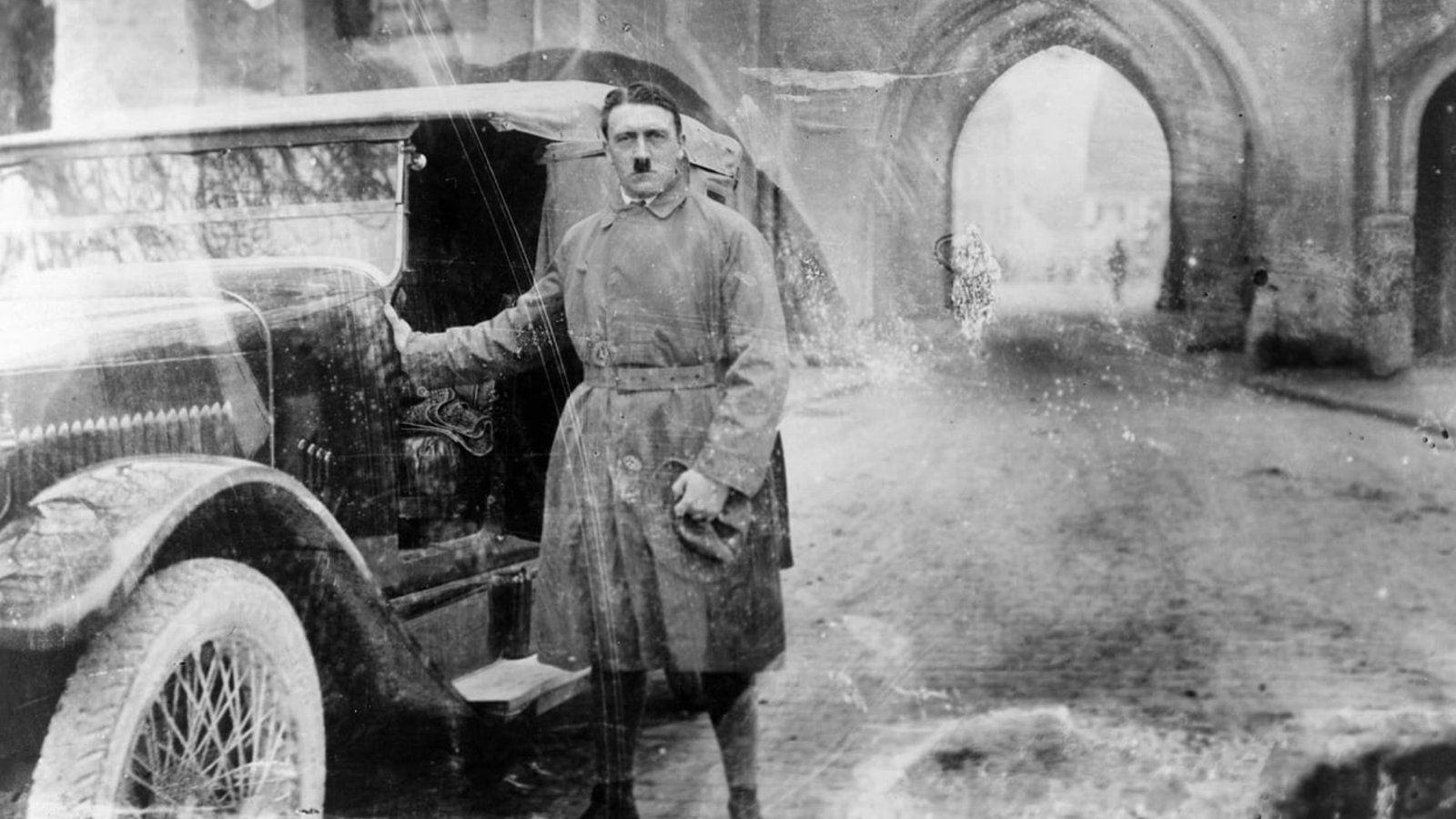Table of Contents
Introduction
“Did Adolf Hitler Kill Himself” The twilight of the Third Reich saw its infamously tyrannical leader, Adolf Hitler, plummet from the heights of power to the depths of defeat. His final days were characterized by increasing desperation and isolation as the tide of World War II turned decisively against Nazi Germany. This essay explores the confluence of military, political, and psychological factors that culminated in the Führer’s suicide in April 1945. Did Adolf Hitler Kill Himself
The Fateful Decision. Did Adolf Hitler Kill Himself
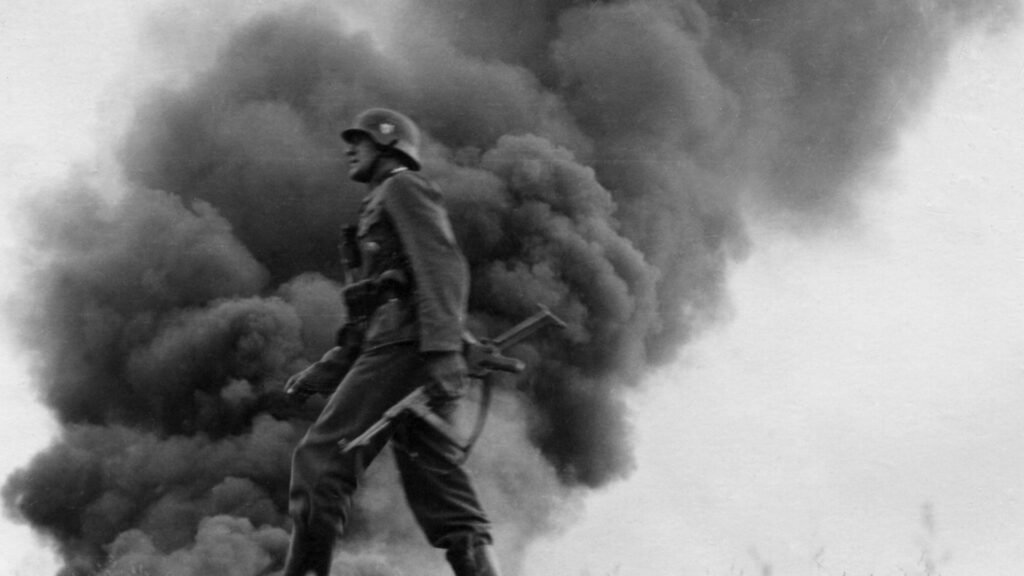
Surrounded by the ruins of his capital and empire, Hitler faced the inescapable reality of imminent defeat. The rapid approach of Soviet forces and the relentless pressure from the Allies left him with few options. The events that led up to his suicide were not merely the closing act of the war but also the consequence of his hubris and unyielding fanaticism. Did Adolf Hitler Kill Himself
The final days of Hitler’s life, playing out within the claustrophobic confines of the Führerbunker in Berlin, were a microcosm of the chaos that had overtaken Nazi Germany. Historians such as Ian Kershaw and Joachim Fest have characterized these moments as a mixture of manic energy, despair, and a surreal sense of inevitability. Central to Hitler’s fateful decision to take his own life was his vehement refusal to be captured alive by the Allies, particularly the Soviets.
This fear was compounded by the fate of Benito Mussolini, the Italian fascist dictator, who was captured, executed, and publicly displayed by Italian partisans. The fear of a similar humiliation, or worse, at the hands of his enemies was intolerable to Hitler. Did Adolf Hitler Kill Himself
Expert opinions underscore that Hitler’s suicide was premeditated, yet hastened by the dramatic collapse of the Nazi defense efforts. According to Hugh Trevor-Roper’s seminal work, The Last Days of Hitler, the Führer was explicit about his intention to not flee Berlin but rather face his end there. This decision was not made in isolation. It was influenced by the loyalists who remained by his side, counseling against surrender and supporting his final act of defiance. In the weeks leading to his suicide, Hitler issued a series of erratic and sometimes contradictory orders, a clear sign of his deteriorating mental state, influenced by both external military failures and internal betrayal perceptions. Did Adolf Hitler Kill Himself
The actual act of suicide, involving both a cyanide capsule and a gunshot, was a meticulously planned affair. Hitler, alongside his long-term partner Eva Braun, who took the cyanide, ensured their deaths would symbolize their ultimate refusal to capitulate. This moment, symbolic of the fall of Nazi Germany, invites continued analysis and debate among historians. Did Adolf Hitler Kill Himself
Some argue it was the ultimate act of cowardice and abdication of responsibility, while others see it as a consistent end for a dictator who had always advocated for a doctrine of victory or death. Regardless of the perspective, the consensus among researchers is that Hitler’s suicide was both a personal and political decision, marking the definitive end of his totalitarian regime and a tragic chapter in the history of the 20th century. Did Adolf Hitler Kill Himself
The Bunker and Final Moments
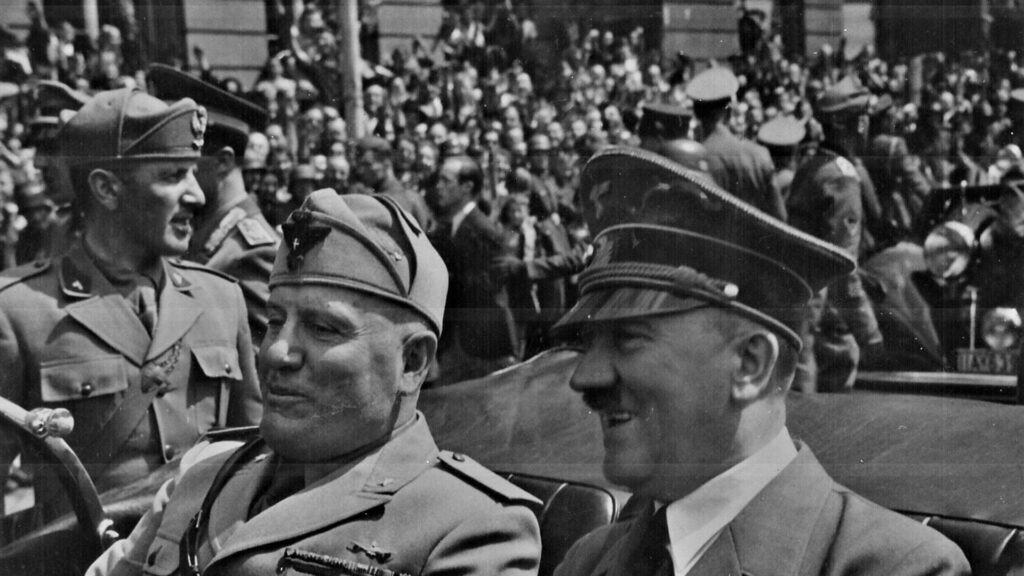
In the oppressive confines of the Führerbunker, Hitler witnessed the collapse of his dominion. According to accounts from witnesses and historical records, the atmosphere was one of doom. The suicide of Hitler, alongside his wife Eva Braun, marked an inglorious end to their reign. Their bodies, subject to a hasty cremation, signified a final attempt to deny the victors their complete vengeance. Did Adolf Hitler Kill Himself
The Führerbunker, a bunker complex beneath the Reich Chancellery garden in Berlin, served as the backdrop to Hitler’s last days and the Nazi regime’s final stand. Its walls, engineered to withstand even the most severe bombings, bore silent witness to the disintegration of a tyrant’s dreams and the unequivocal end of the Third Reich. Historical reports and eyewitness accounts provide a stark description of life within the bunker during those final days; it was a place where hope dwindled with each passing hour, where the inevitability of defeat was palpable in the air. Did Adolf Hitler Kill Himself
Renowned historian Anthony Beevor provides a vivid depiction of those moments in his work, Berlin: The Downfall 1945. He describes the bunker as a claustrophobic maze of rooms, filled with a mix of despair and denial. High-ranking Nazi officials, soldiers, and support staff navigated their way through the psychological turmoil wrought by their impending doom. The atmosphere was heavy with fear, suspicion, and paranoia, exacerbated by the frequent sounds of Soviet artillery pounding the city above them. Did Adolf Hitler Kill Himself
Experts often juxtapose the ostentatious lifestyle Hitler had enjoyed at the height of his power with his dismal end within the bunker. The stark contrast serves as a poignant reminder of the transitory nature of power and the consequences of hubris. Dr. Richard J. Evans, in his analysis, points out that despite the bunker’s physical security, it offered no refuge from the mental and emotional siege Hitler faced. His final moments were shaped not just by the looming military defeat but also by a profound sense of betrayal and abandonment, as once-loyal followers began to desert him, seeking their own survival. Did Adolf Hitler Kill Himself
Furthermore, the conversations and decisions made within those cramped quarters were marked by a combination of desperation and detachment from reality. Hitler’s orders were increasingly fantastical, calling for armies that no longer existed to rescue Berlin. His marriage to Eva Braun, less than 40 hours before their joint suicide, added a surreal domestic touch to the otherwise stark militaristic endgame unfolding around them. Did Adolf Hitler Kill Himself
The final act of suicide by Hitler and Braun, meticulously planned, was emblematic of Hitler’s refusal to face the consequences of his actions. This decision, while intensely personal, was also deeply political. By choosing death in the bunker, Hitler attempted to control the narrative of his demise, crafting a final message of defiance against his enemies. However, as noted by historian Ian Kershaw, this act did little to salvage his legacy, serving instead as a final testament to his failure to recognize the catastrophic consequences of his ambition for Germany and the world. Did Adolf Hitler Kill Himself
In the years following, the site of the Führerbunker has attracted significant historical interest. It symbolizes not just the fall of a dictator but also serves as a grim reminder of the brutalities of war and the destructive potential of unchecked power. Despite its historical significance, the actual physical remains of the bunker are unremarkable, a decision by subsequent German governments to prevent it from becoming a shrine to neo-Nazism. The legacy of those final moments in the bunker continues to provoke reflection and debate among historians and the public alike, underscoring the complex interplay of individual decisions and historical forces in shaping the course of history. Did Adolf Hitler Kill Himself
Motivations Behind Suicide
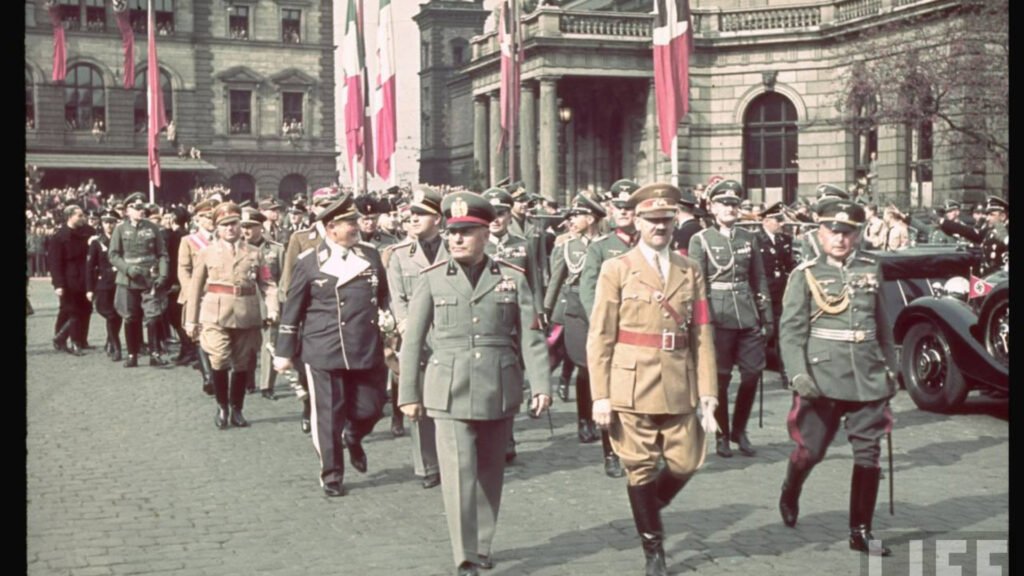
While the physical evidence of his death is clear, the psychological underpinnings are more complex. Hitler’s mental and emotional state had undoubtedly deteriorated; his decision to commit suicide was motivated partly by his pathological fear of falling into enemy hands and being paraded as a trophy of war. His final act was consistent with his character—an ultimate refusal to accept responsibility or face the consequences. Did Adolf Hitler Kill Himself
Adolf Hitler’s suicide, which marked a grim culmination to the Second World War in Europe, continues to be dissected by historians and psychologists aiming to understand the complex motivations behind his decision. Central to this analysis is Hitler’s deep-seated aversion to the notion of capture. Notably, experts point to his oft-expressed horror at the fate of Italy’s Benito Mussolini, who was captured, killed, and then strung up alongside his mistress for public display. This stark image likely cemented Hitler’s resolve to avoid a similar fate at all costs. Did Adolf Hitler Kill Himself
Research into Hitler’s psychological profile suggests a profound paranoia and an obsession with control, traits that shaped his leadership as much as they did the manner of his ending. Dr. Henrik Eberle, in his study, mentions Hitler’s deteriorating physical health and its possible impact on his mental state, proposing that a cocktail of drugs prescribed for his various ailments may have further skewed his judgment and heightened his paranoia. Did Adolf Hitler Kill Himself
Furthermore, historian Ian Kershaw argues that Hitler’s decision was also rooted in a desire to preserve a mythic image of himself. By choosing suicide, Hitler aimed to embody the heroic downfall of a valiant warrior, rather than endure the ignominy of defeat. This narrative, however skewed, was meant to serve as a testament to his followers and as a final act of defiance against his enemies. Did Adolf Hitler Kill Himself
Experts also suggest that the suicides of Joseph Goebbels and his family, which followed Hitler’s death, were influenced by a similar set of psychological factors. These acts were part of a broader pattern of suicide among Nazi leaders, underscoring a collective unwillingness to face the consequences of their actions. Ultimately, Hitler’s suicide does not only reflect his personal despair but also symbolizes the ideological bankruptcy and moral capitulation of the Nazi regime. Did Adolf Hitler Kill Himself
This grim chapter, heavily laden with historical significance, continues to stimulate research and debate. As scholars comb through newly available documents and testimonies, the motivations behind Hitler’s suicide remain a subject of fascination, offering insights into the psyche of one of history’s most notorious figures. Did Adolf Hitler Kill Himself
Historical Impact
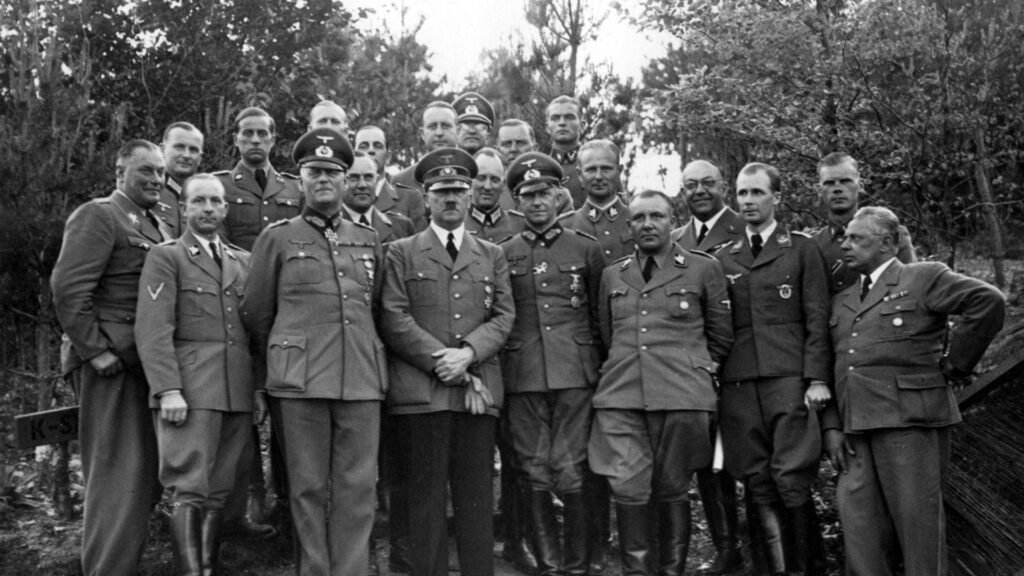
The impact of Hitler’s death resonated profoundly on both sides of the war. For the Allies, it was a moment of relief and affirmation, while for Nazi sympathizers, it was the end of a calamitous chapter. Politically, his suicide allowed for a more unequivocal transition to post-war rebuilding and legal proceedings against surviving members of his regime. Did Adolf Hitler Kill Himself
The death of Adolf Hitler, confirmed through suicide alongside Eva Braun, indeed marks one of the most pivotal moments in 20th-century history. This event not only signaled the fall of the Third Reich but also fundamentally altered the geopolitical landscape of post-war Europe. Experts and historians have long debated the wider ramifications of Hitler’s suicide on the immediate aftermath and the course of world events that followed. Did Adolf Hitler Kill Himself
Research rooted in historical documentation reveals a tangible shift in the moral and psychological battle waged during World War II. According to Professor Margaret MacMillan at the University of Oxford, Hitler’s death effectively dismantled the moral resolve of the German military, expediting the unconditional surrender of German forces. This perspective is bolstered by the testimonies of senior German officers, who recognized Hitler’s demise as the definitive end to their cause. Did Adolf Hitler Kill Himself
From the standpoint of international relations, Hitler’s suicide marked a crucial turning point. Dr. Charles K. Armstrong, a specialist in modern Korean history, posits that the power vacuum left by the Nazi regime hastened the division of Germany and indirectly set the stage for the Cold War. The absence of a central Nazi figurehead like Hitler made the Potsdam Conference, where the Allies decided the post-war reorganization, somewhat less complicated but more urgent in addressing the imminent Soviet threat. Did Adolf Hitler Kill Himself
Further, the sociopolitical impact of Hitler’s suicide has been extensively analyzed. Dr. Rebecca L. Spang, an expert in modern European history, suggests that Hitler’s choice to end his own life rather than face capture was symbolic of his regime’s broader refusal to confront reality. This act underscored the ultimate failure of totalitarianism to construct a sustainable societal model, providing a cautionary tale on the dangers of absolute power and ideological fanaticism. Did Adolf Hitler Kill Himself
Additionally, the psychological motivations behind Hitler’s suicide, as explored by historians like Ian Kershaw, offer a crucial window into understanding the dictator’s final days. Kershaw’s analysis contends that Hitler’s choice of death over capitulation was not just a personal escape from defeat but an attempt to maintain a semblance of control over the narrative of his life and legacy. This assertion resonates with some psychological theories surrounding suicide, suggesting that for Hitler, ending his life was the ultimate act of asserting control in the face of overwhelming defeat. Did Adolf Hitler Kill Himself
In conclusion, the historical impact of Adolf Hitler’s suicide extends far beyond the immediate effects on World War II. It influenced the post-war restructuring of Europe, the onset of the Cold War, and the ideological battles that ensued. Expert opinions and research underscore the nuanced ways in which Hitler’s death influenced not just the end of the conflict but the shaping of the modern world order. This chapter of history continues to be a subject of significant scholarly attention, reflecting the complex legacy of Hitler’s tragic demise. Did Adolf Hitler Kill Himself
Conspiracy Theories
Several conspiracy theories claim that Hitler escaped death, proposing that he fled to South America or elsewhere. Such theories often stem from the clandestine nature of his demise and the initial lack of conclusive forensic evidence. However, subsequent investigations and historical consensus maintain that Hitler did indeed kill himself in the bunker. Did Adolf Hitler Kill Himself
Despite the prevailing consensus among historians that Adolf Hitler committed suicide in his bunker in April 1945, conspiracy theories regarding his fate have persisted. These theories often hinge on alleged sightings of Hitler post-war and claims that he, alongside other Nazi officials, found refuge in countries like Argentina or even Antarctica. Such theories gained traction due to the initial lack of publicly available forensic evidence and the secretive nature surrounding the final days of the Third Reich. Did Adolf Hitler Kill Himself
Scholarly research, however, heavily counters these conspiracy theories. In recent years, more definitive evidence has emerged to dispel these myths. A pivotal moment came when a study led by Philippe Charlier, a French forensic pathologist, was given access to the preserved fragments of Hitler’s teeth by Russian authorities. The study, published in the European Journal of Internal Medicine in 2018, conclusively confirmed that the dental remains were indeed Hitler’s, showing no evidence consistent with the post-war survival theories. The condition and characteristics of the dental work matched Hitler’s medical records, an aspect of the evidence that is particularly difficult to dispute due to its specificity and the expertise required to analyze it correctly. Did Adolf Hitler Kill Himself
Experts like Richard J. Evans, Regius Professor of History at the University of Cambridge, have also weighed in, suggesting that the propagation of these theories undermines the extensive documentation and eyewitness accounts confirming Hitler’s death. He asserts that such conspiracy theories distract from the important historical understanding of the end of World War II and the moral and legal reckoning that followed for the Nazi regime. Did Adolf Hitler Kill Himself
In addition to discrediting the escape narratives, research into the specific conditions under which Hitler died and the subsequent handling of his remains by the Soviets adds further clarity. The Soviet secrecy regarding Hitler’s suicide and the relics of his demise, including the petrol-soaked remains found outside the bunker, initially fueled speculation. However, this was more a reflection of Cold War espionage and mistrust rather than evidence of Hitler’s escape. Did Adolf Hitler Kill Himself
Ultimately, while conspiracy theories about Hitler’s fate continue to intrigue, expert opinion and recent forensic evidence strongly affirm the historical account of Hitler’s suicide. This consensus among historians and scientists underscores the importance of rigorous academic scrutiny and the application of modern forensic techniques in dispelling myths and reaffirming established historical facts. Did Adolf Hitler Kill Himself
Legacy and Remembrance
More than seventy years later, the circumstances of Hitler’s death continue to occupy a complex place in historical memory. His end is often overshadowed by the enormity of the crimes he orchestrated, yet it continues to hold a morbid fascination for many. The legacy of his rule and its violent conclusion informs our understanding of totalitarianism and the fragility of civilized societies. Did Adolf Hitler Kill Himself
The legacy and remembrance of Adolf Hitler’s death intertwine closely with the broader historical narrative of World War II and the Holocaust. Researchers and academic scholars emphasize that the way Hitler’s death is commemorated or remembered is not merely a matter of historical fact but also a reflection of societal attitudes towards tyranny, genocide, and the moral failings that allowed such atrocities to occur. Dr. Susan Neiman, a renowned philosopher and director of the Einstein Forum, underscores the critical importance of remembering the horrors of the Holocaust and the nature of Hitler’s dictatorship as catalysts for examining the darker sides of humanity and the capacity for evil.Did Adolf Hitler Kill Himself
In terms of research and expert opinions, several historians have highlighted how Hitler’s demise has been used to symbolize the fall of Nazism, an ideology that wrought unparalleled destruction across Europe and beyond. Dr. James M. McPherson, a Pulitzer Prize-winning American historian, argues that Hitler’s suicide and the subsequent defeat of the Nazi regime served as a crucial turning point that not only ended the war but also marked the beginning of a new era of international relations and the establishment of the United Nations, aimed at preventing future genocides and fostering peace. Did Adolf Hitler Kill Himself
The scholarly discourse around the legacy of Hitler’s end emphasizes the importance of remembrance and education as means of preventing history from repeating itself. This is evident in the work of historians like Timothy Snyder, who, in his books, has explored the dynamics of totalitarian regimes and the lessons that Hitler’s reign and its violent culmination teach about the value of democracy, the rule of law, and the preservation of human rights.
Importantly, the remembrance of Hitler’s death is also entwined with debates on how societies memorialize victims of the Holocaust and the perils of forgetting the past. The role of Holocaust memorials, museums, and education programs worldwide serve not only as tributes to the victims but also as poignant reminders of the consequences of hatred, bigotry, and authoritarianism.
Thus, the legacy of Hitler’s death, as illuminated by research and expert opinions, serves as a potent symbol of the end of a dark chapter in human history and a reminder of the ongoing struggle to understand the depths of human cruelty, with the hope of forging a more compassionate and just world.
Conclusion
The psychological unraveling of Adolf Hitler, coupled with unassailable political and military pressures, led to his suicide—a decision that sealed the fate of the Nazi regime and hastened the end of the war in Europe. Hitler’s death stands not only as a historical fact but as a symbol of the ruinous path of hate and megalomania, a reminder of humanity’s capacity for both destruction and, ultimately, renewal.
FAQs
Did Adolf Hitler commit suicide?
Yes, historical evidence and records from eyewitnesses confirm that Adolf Hitler committed suicide on April 30, 1945, in his bunker in Berlin as Allied forces closed in on the city.
How did Hitler die?
Adolf Hitler died by suicide, consuming cyanide and shooting himself in the head simultaneously to ensure his death.
Why did Hitler choose to end his life?
Hitler chose to end his life to avoid capture by the Allied forces. He expressed a desire to die on his own terms rather than be captured, which he viewed as a disgrace.
Who was with Hitler when he died?
Hitler was in the company of Eva Braun, his long-term partner whom he married shortly before their deaths, and a few loyal associates and military officials who chose to remain in the bunker until the end.
What happened to Hitler’s body after his death?
After Hitler’s suicide, his body and that of Eva Braun were carried outside the bunker, doused with petrol, and set on fire as per his instructions, to prevent his remains from being displayed by the Allies.
How did the world react to Hitler’s death?
News of Hitler’s death was met with a mix of relief and skepticism around the world. While it marked the symbolic end of Nazi Germany, many wished he had been captured alive to face justice for his crimes.
Was there any investigation into Hitler’s death?
After the war, the Allies conducted investigations to confirm Hitler’s death due to initial doubts and lack of physical evidence, largely relying on eyewitness testimonies and forensic analysis of the remains found in the vicinity of the bunker.
What significance does Hitler’s suicide have in historical context?
Hitler’s suicide is seen as the final act of a dictator who brought unprecedented destruction upon Europe. It symbolizes the collapse of Nazi Germany and is a reminder of the catastrophic consequences of totalitarian regimes.
These FAQs aim to provide a clear, concise understan

